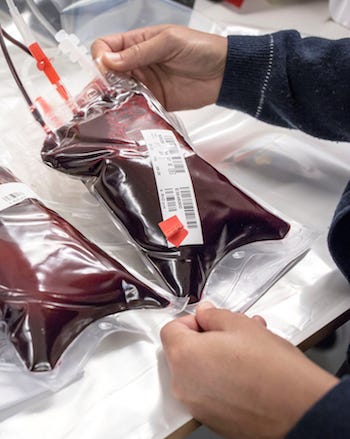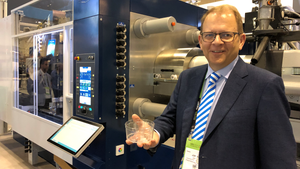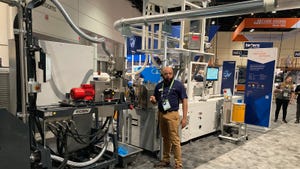PVC-free blood bags begin milestone in vitro study
Whatever you may think about the science supporting the alleged health risks of PVC and phthalates, the marketing battle has been lost. "PVC free" is a slogan that resonates in the public space, much in the same way as gluten free, even when the latter promotes a product that never contained gluten in the first place. Early on, Danish company Melitek (Alslev) has been at the forefront of developing and supplying thermoplastic elastomer and polyolefin compounds for use as PVC replacement materials in the healthcare sector.
November 11, 2015
Whatever you may think about the science supporting the alleged health risks of PVC and phthalates, the marketing battle has been lost. "PVC free" is a slogan that resonates in the public space, much in the same way as gluten free, even when the latter promotes a product that never contained gluten in the first place. Early on, Danish company Melitek (Alslev) has been at the forefront of developing and supplying thermoplastic elastomer and polyolefin compounds for use as PVC replacement materials in the healthcare sector. The company has just announced a new milestone: PVC-free blood bags, which are produced at Melitek's plant near Copenhagen from soft polyolefin materials, have begun in vitro testing at Karolinska University Hospital with donor blood. There are currently no PVC-free blood bags for red blood cells on the market, and one of the goals of the test, and indeed the entire EU-sponsored project, is to "prove to healthcare providers, industry and the public that it is possible to substitute PVC in one of the [remaining healthcare] applications where PVC containing DEHP phthalates [is] in use", says Business Director Jesper Laursen.
 The polyolefin-based bags have already demonstrated that they meet performance requirements in tests with water. The bags and associated tubing fulfilled essential requirements involving impact during centrifugation and leakage, says Melitek, and similar tests will now be conducted using blood. Results are expected in March 2016.
The polyolefin-based bags have already demonstrated that they meet performance requirements in tests with water. The bags and associated tubing fulfilled essential requirements involving impact during centrifugation and leakage, says Melitek, and similar tests will now be conducted using blood. Results are expected in March 2016.
Concurrent with the in vitro study at Karolinska, the PVC-free blood bags will undergo tests at five other Swedish hospitals to simulate and evaluate their handling by medical staff.
This initiative is part of the PVCfreeBloodBag project, a cooperative venture uniting industry and European healthcare providers in phasing out hazardous substances from healthcare applications. In addition to Melitek, Wipak Oy (Nastola, Finland), Primo Profile (Zory, Poland) and Haemotronic (Mirandola, Italy) are part of the project. PVCfreeBloodBag is part of the European Union's Life+ Environmental Programme.
Assuming that the in vitro test replicates the results of the water test, the next hurdle for Melitek and its fellow travelers is to raise awareness among healthcare providers. "Over the years, we have supplied materials for many applications replacing soft PVC in medical products," says Laursen. "Now, our goal is to demonstrate that our material platform will work and offer environmental and health benefits also for blood bags. We hope this project will prove to healthcare providers, industry and the public that it is possible to substitute PVC in one of the last few applications where PVC containing DEHP phthalates still remains in use", says Laursen.
About the Author(s)
You May Also Like



